On November 9th, the Fourth Shandong Forum was successfully held. Among the events, the first sub-forum themedBuilding Peace in East Asia under the New Situationwas conducted in the afternoon, jointly organized by Shandong University and the Chey Institute for Advanced Studies and hosted by Shandong University's Institute of Asia-Pacific Studies,the Institute ofSCOStudies, and Research Center for Risk Governance and Emergency Management.Edmund Li Sheng, Distinguished Professor of the School of Political Scienceand Public Administration and Executive Dean of theInstitute ofSCOStudies,Shandong University,, served as the host for Session 2:China and East Asia: New Trends in Cooperation towards a Shared Future. During the session, six invited guests presented their reports and shared insights in sequence.
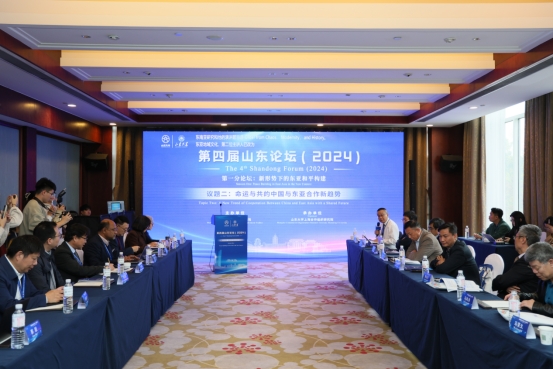
Niu Junkai, Dean and Professor of the School of International Relations, Sun Yat-sen University, delivered a speechOrder in Chaos: Modernity and History in the Regional Culture of Southeast Asia. He pointed out that ASEAN, as one of the most successful regional organizations in the Asia-Pacific region, has become the core of security and cooperation in the region despite being influenced by its colonial history, pre-modern cultural factors, and diverse complexities. The reason for this is that its member states have been able to seek common ground amidst political system differences and historical legacy issues, constructing a stable framework for regional cooperation. This phenomenon of "order in chaos" demonstrates ASEAN's flexibility and strategic balancing capabilities in international politics.
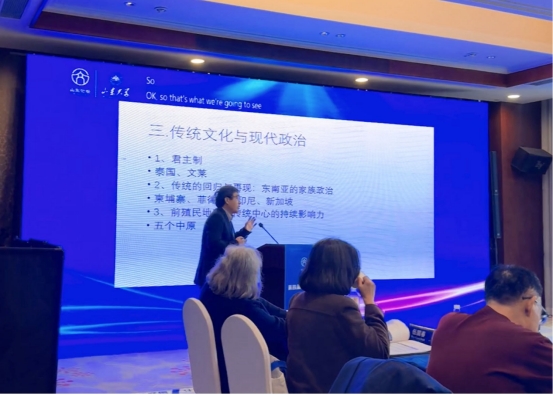
Ma Fengshu, Professor of the School of Political Science and Public Administration, Shandong University, and Director of the Center for Russian and Central Asian Studies, presented a topicChallenges Facing China and East Asian Cooperation in the Context of Major International Changes. He pointed out that amidst significant transformations in the international landscape, international order, and international system, rapid changes in the power balance among major powers, major reforms in international organizations, Rebuild of international relations, escalation of security challenges, fragmentation of economic rules, and a rightward shift in political tendencies have posed a series of complex and severe challenges for China and East Asian cooperation.
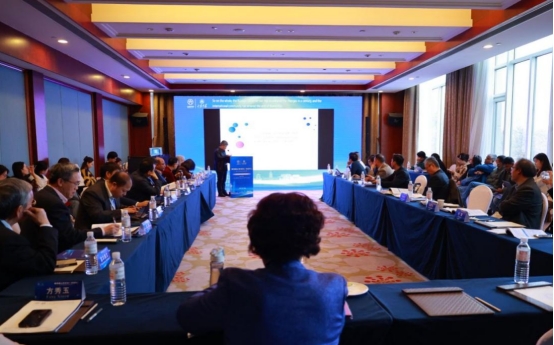
Guo Peiqing, Professor of the School of International Affairs and Public Administration at Ocean University of China, focused his presentation onCooperation and Competition Among China, Japan, and South Korea in the Arctic, providing an in-depth analysis of the cooperation and competition dynamics among the three countries. China, Japan, and South Korea share common interests in environmental protection, scientific research, and other fields. However, in practical terms, cooperation among the three countries has progressed slowly and is constrained by multiple factors such as security competition and resource competition. In the future, the three countries need to seek cooperation opportunities within the complex great power relations to achieve peace and sustainable development in the Arctic region.
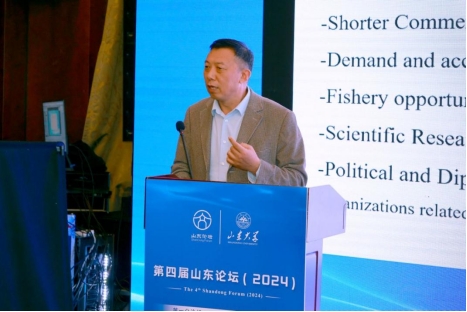
Professor Minh-Hai Ngo, Vice Rector of the University of Economics and Finance - Hue, delivered a presentationExploring the Landscape of Vietnam's Transnational Education and Its Potential for International Cooperation. He comprehensively analyzed the current state and development trends of Vietnam's transnational education, highlighting the diverse types of higher education institutions in Vietnam and the gradual easing of government policies. Through data-driven arguments, he revealed the immense potential for international cooperation between Vietnam's transnational education sector and China.
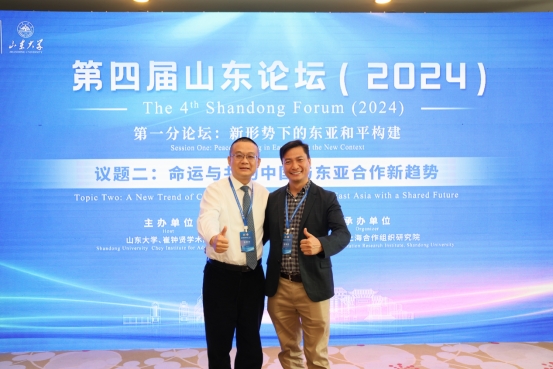
Guo Qingcun, Distinguished Professor of the School of International Innovation and Transformation, Shandong University, presented a topicEquality, Reciprocity, and Win-Win Cooperation - Actively Promoting Scientific and Technological Cooperation Between China and East Asia. He pointed out that a new round of technological revolution has made scientific and technological cooperation a consensus in East Asia. East Asia has a solid foundation for scientific and technological cooperation, especially among China, Japan, and South Korea, which have achieved remarkable results in recent years. However, it also faces competition and challenges. East Asian countries need to adhere to the principles of equality, reciprocity, and win-win cooperation to provide institutional support for advancing scientific and technological cooperation between China and East Asia.
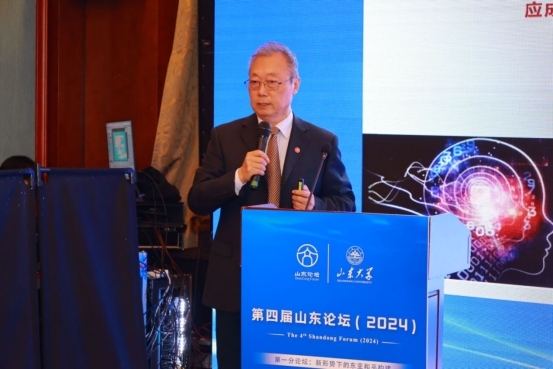
The title of the report by Ma Rongjiu, Professor of the School of Political Science and Public Administration, Shandong University, isThe Institutional Path of the East Asian Community of Shared Future for Mankind. In the context of profound changes taking place in the world over the past century, the construction of the East Asian Community of Shared Future for Mankind has become the right direction to promote regional peace, security, prosperity, inclusiveness, and sustainable development. This process relies on multilateral mechanisms and regional institutions. Among them, promoting multilateral cooperation through bilateral efforts to facilitate the realization of a shared regional destiny, China plays a leading role in the process of building the East Asian Community of Shared Future for Mankind.
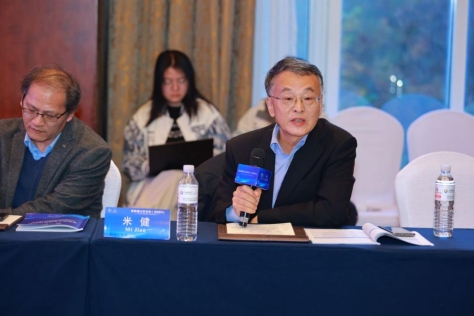
Mi Jian, Distinguished Professor of the Advanced Institute for Humanities and Social Sciences, Beijing Normal University, summarized and commented on the aforementioned presentations. He pointed out that the sharing in this session emphasized the importance of building the East Asian Community and advancing the process of East Asian cooperation on the basis of peace, through exchanges of culture and ideas, and cooperation at both macro and micro levels.
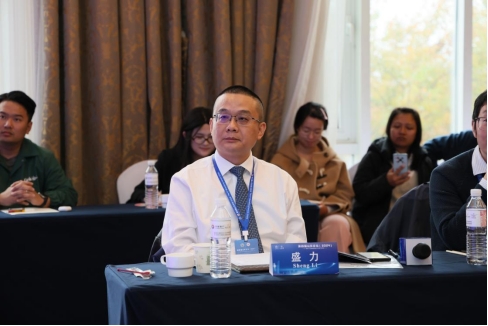
After the meeting, Professor Edmund Li Sheng presented certificates of appointment as "Researchers of the Institute of SCO Studies, Shandong University" to Dean Niu Junkai, President Minh-Hai Ngo, and Professor Guo Peiqing respectively, and extended a warm welcome to the three professors for joining the team.
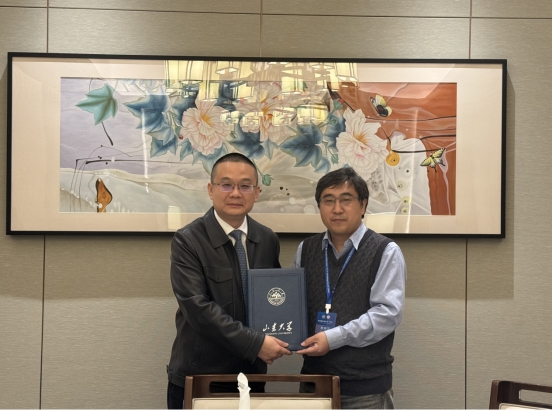
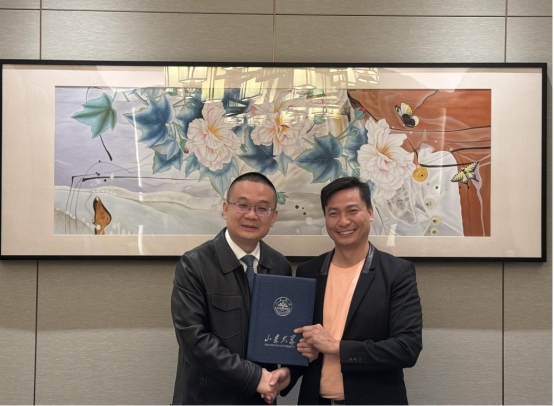
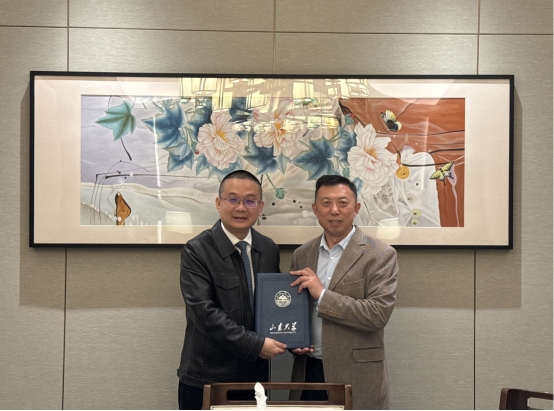
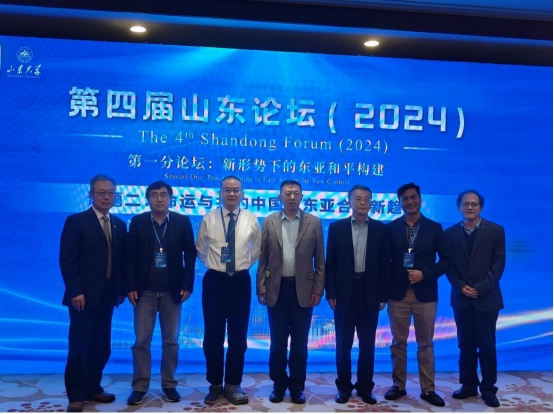
The sub-forum of the Shandong Forum served as a platform for experts and scholars from various countries to exchange ideas in related fields, aiming to promote peaceful cooperation in East Asia and contribute to the shared destiny of the region in the context of profound changes taking place in the world over the past century. The participation and discussions of Professor Edmund Li Sheng and the invited guests contributed the efforts of Shandong University to strengthening interconnectivity among East Asian countries, promoting the construction of regional cooperation mechanisms, and building a community with a shared future for mankind.
